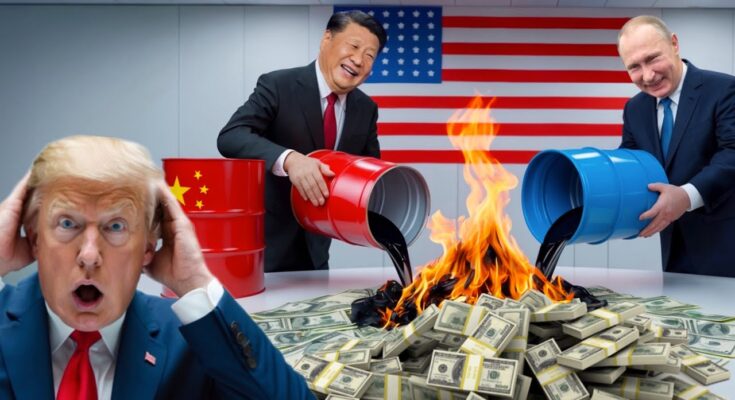The American economy, seemingly stable with low unemployment and climbing stock markets, is hiding a dangerous secret: a financial time bomb built on mountains of junk bonds and corporate debt. Financial heavyweights like Jeffrey Gundlach and Jamie Dimon are sounding the alarm, warning that the market is dangerously overvalued and poised for a potential collapse that could cost the economy billions daily and trigger a crisis hidden in plain sight.
The Unsettling Warning Signs
At the heart of the concern lies the junk bond market—debts issued by companies with low credit ratings, indicating they are in shaky financial health. To attract investors, these bonds offer high yields, but the risk of default is massive.
The major warning sign is the shrinking credit spread (the difference in yields between junk bonds and safe U.S. Treasury bonds) to a historically low 3.2%. This extreme complacency eerily mirrors the pre-crisis period of 2007, when markets ignored clear warning signals. Investors are aggressively chasing returns despite many companies being “neck deep” in liabilities, leading to a dangerous overvaluation.
- Expert Retreat: Prominent figures are actively reducing exposure. Jeffrey Gundlach’s DoubleLine Capital has cut its stake in junk bonds to a record low, concluding that the risk no longer justifies the reward. Jamie Dimon, CEO of JP Morgan Chase, has also advised against entering the current bond market, citing a “toxic cocktail” of factors.
- The Debt Monster: The U.S. national debt is approaching $37 trillion, with interest payments already exceeding $1 trillion annually. This rapid, uncontrolled debt growth combined with banks’ limited ability to intervene in market shocks makes the foundation of the financial system “bloated, blind, and unstable.”
- Downgrade Tide: For the first time in over a year, the number of American companies receiving credit rating downgrades has exceeded those getting upgrades. In 2025 alone, nearly $50 billion worth of U.S. corporate bonds have been downgraded to junk status—a 6:1 ratio in favor of decline. When major companies, or “fallen angels,” like Warner Brothers Discovery, are downgraded, it shakes investor confidence across the entire market.
The Contagion Threat: A Vicious Cycle
The looming crisis isn’t just about corporate balance sheets; it’s about systemic contagion. When heavily indebted companies cannot refinance (take on new loans to pay off old ones), they will default. These defaults will be contagious, rapidly hitting pension funds, insurance companies, and ordinary retirement savings.
The situation is worsened by two key pressures:
- Global Instability: Geopolitical conflicts, such as those in the Middle East, risk blocking vital supply routes like the Strait of Hormuz. Any disruption could send oil prices skyrocketing, which, in turn, increases costs for businesses across transportation and production. This rising inflation prevents the Federal Reserve from cutting interest rates, forcing debt-laden companies to face cripplingly high borrowing costs instead of the relief they desperately need.
- The Shadow Market: A significant portion of corporate debt is hidden within the private credit market, a $2.5 trillion shadow sector. These are largely unregulated loans issued by private funds to the same high-risk companies issuing junk bonds, operating without transparency. This lack of oversight means that when defaults begin, the system may not see the cracks until the catastrophe is already upon us.
The stark difference in behavior—where financial experts are retreating while retail investors are charging into high-risk issuances—suggests a reckless belief that the Federal Reserve will intervene. With the Fed’s credibility tied to controlling inflation, this hope is misplaced. The system is set up for a chain reaction where corporate debt, global chaos, and inflation combine to turn corporate America’s debt pyramid into a house of cards. The collapse, having begun quietly, threatens to erupt loudly unless urgent action is taken to address the underlying debt addiction.



